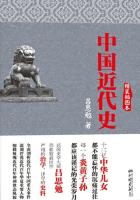When Washington reached home, he recognized at once how serious his father's case was. The darkened room, the labored breathing and occasional moanings of the patient, the tip-toeing of the attendants and their whispered consultations, were full of sad meaning. For three or four nights Mrs. Hawkins and Laura had been watching by the bedside; Clay had arrived, preceding Washington by one day, and he was now added to the corps of watchers. Mr. Hawkins would have none but these three, though neighborly assistance was offered by old friends. From this time forth three-hour watches were instituted, and day and night the watchers kept their vigils. By degrees Laura and her mother began to show wear, but neither of them would yield a minute of their tasks to Clay. He ventured once to let the midnight hour pass without calling Laura, but he ventured no more; there was that about her rebuke when he tried to explain, that taught him that to let her sleep when she might be ministering to her father's needs, was to rob her of moments that were priceless in her eyes; he perceived that she regarded it as a privilege to watch, not a burden. And, he had noticed, also, that when midnight struck, the patient turned his eyes toward the door, with an expectancy in them which presently grew into a longing but brightened into contentment as soon as the door opened and Laura appeared. And he did not need Laura's rebuke when he heard his father say:
"Clay is good, and you are tired, poor child; but I wanted you so."
"Clay is not good, father--he did not call me. I would not have treated him so. How could you do it, Clay?"
Clay begged forgiveness and promised not to break faith again; and as he betook him to his bed, he said to himself: "It's a steadfast little soul; whoever thinks he is doing the Duchess a kindness by intimating that she is not sufficient for any undertaking she puts her hand to, makes a mistake; and if I did not know it before, I know now that there are surer ways of pleasing her than by trying to lighten her labor when that labor consists in wearing herself out for the sake of a person she loves."
A week drifted by, and all the while the patient sank lower and lower.
The night drew on that was to end all suspense. It was a wintry one.
The darkness gathered, the snow was falling, the wind wailed plaintively about the house or shook it with fitful gusts. The doctor had paid his last visit and gone away with that dismal remark to the nearest friend of the family that he "believed there was nothing more that he could do"--a remark which is always overheard by some one it is not meant for and strikes a lingering half-conscious hope dead with a withering shock;the medicine phials had been removed from the bedside and put out of sight, and all things made orderly and meet for the solemn event that was impending; the patient, with closed eyes, lay scarcely breathing; the watchers sat by and wiped the gathering damps from his forehead while the silent tears flowed down their faces; the deep hush was only interrupted by sobs from the children, grouped about the bed.
After a time--it was toward midnight now--Mr. Hawkins roused out of a doze, looked about him and was evidently trying to speak. Instantly Laura lifted his head and in a failing voice he said, while something of the old light shone in his eyes:
"Wife--children--come nearer--nearer. The darkness grows. Let me see you all, once more."
The group closed together at the bedside, and their tears and sobs came now without restraint.
"I am leaving you in cruel poverty. I have been--so foolish--so short-sighted. But courage! A better day is--is coming. Never lose sight of the Tennessee Land! Be wary. There is wealth stored up for you there--wealth that is boundless! The children shall hold up their heads with the best in the land, yet. Where are the papers?--Have you got the papers safe? Show them--show them to me!"
Under his strong excitement his voice had gathered power and his last sentences were spoken with scarcely a perceptible halt or hindrance.
With an effort he had raised himself almost without assistance to a sitting posture. But now the fire faded out of his eyes and be fell back exhausted. The papers were brought and held before him, and the answering smile that flitted across his face showed that he was satisfied. He closed his eyes, and the signs of approaching dissolution multiplied rapidly. He lay almost motionless for a little while, then suddenly partly raised his head and looked about him as one who peers into a dim uncertain light. He muttered:
"Gone? No--I see you--still. It is--it is-over. But you are--safe.
Safe. The Ten-----"
The voice died out in a whisper; the sentence was never finished. The emaciated fingers began to pick at the coverlet, a fatal sign. After a time there were no sounds but the cries of the mourners within and the gusty turmoil of the wind without. Laura had bent down and kissed her father's lips as the spirit left the body; but she did not sob, or utter any ejaculation; her tears flowed silently. Then she closed the dead eyes, and crossed the hands upon the breast; after a season, she kissed the forehead reverently, drew the sheet up over the face, and then walked apart and sat down with the look of one who is done with life and has no further interest in its joys and sorrows, its hopes or its ambitions.
Clay buried his face in the coverlet of the bed; when the other children and the mother realized that death was indeed come at last, they threw themselves into each others' arms and gave way to a frenzy of grief.















